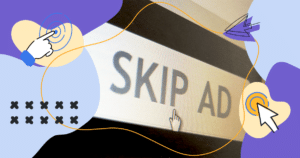I’ll be honest here as I begin to write this blog post—no matter how hard I try, I can’t write a blog post that doesn’t partly resemble a news article.
My serious writing style was initially patterned on The New York Times news articles that I began reading at age 8, but evolved into a conversational style during my 30-year career. Although my style changed, I still researched news articles so thoroughly that they included a lot of dry information even when they began with me “talking” to readers. Some of the articles I have written for WriterAccess clients have had more than 20 sources.
When clients began assigning me blog posts, I kept writing news articles. One day, though, an editor told me that I didn’t need to write an article on President Obama’s health insurance proposal that covered every major aspect of the plan. “Relax,” he wrote. “It’s a blog post.”
So what’s the difference between a blog post and a news article? I demonstrated part of the answer in the above paragraphs although the distinctions are becoming increasingly smaller, according to this Slate magazine article. Blog posts are more personal. Their “voice” differentiates one writer from another. News article writers can be different too as I demonstrated by “talking” to readers, but news articles have more style and voice constraints.
If this was a news article, I would have focused on the sources that I found for this topic such as The Washington Post’s Ezra Klein’s blog post “Blogs vs. articles” and WritersDigest.com’s Brian Klems’ blog post “The 12 Dos and Don’ts of Writing a Blog.”
A news article could begin “Do you want to write a blog post or a news article?” The second paragraph could say “Noted writer Ezra Klein writes both, and he has advice about the differences.” Then, I would report on Klein and Klems’ views about the topic rather than my thoughts.
Being the news reporter that I am, I felt compelled to research Klein and Klems’ views. Thus, as I wrote in the first sentence, this blog post partly resembles a news article. An article, though, would detail Klein’s perspective, but detailed explanations in blog posts are “done in a link,” Klein writes.
“An article is more like a lecture,” he wrote.
The personal nature of blog posts means that they have more regular readers and, thus, articles should be more concise and detailed because “you may not be able to speak with (the readers) again,” added Klein. In addition, blog posts shouldn’t have a word count limit, wrote Klems.
I could list Klems’ dos and don’ts here, but this is a blog post, sort of, so I will conclude with MY tips for prospective web bloggers.
- Write about specific topics you are passionate about rather than general topics you think people are interested in. I met an inexperienced writer last year who wrote about sports in general, but dozens of well-known writers blog about sports. He needed to focus on something specific like local high school sports.
- Write short paragraphs. I’ve seen the research. Readers cringe when they see long paragraphs. It’s too much work.
- Urge your readers to comment on your blog posts — and respond to them. Creating a rapport with readers is important. You should solicit their ideas — and write blog posts on their best story ideas.








